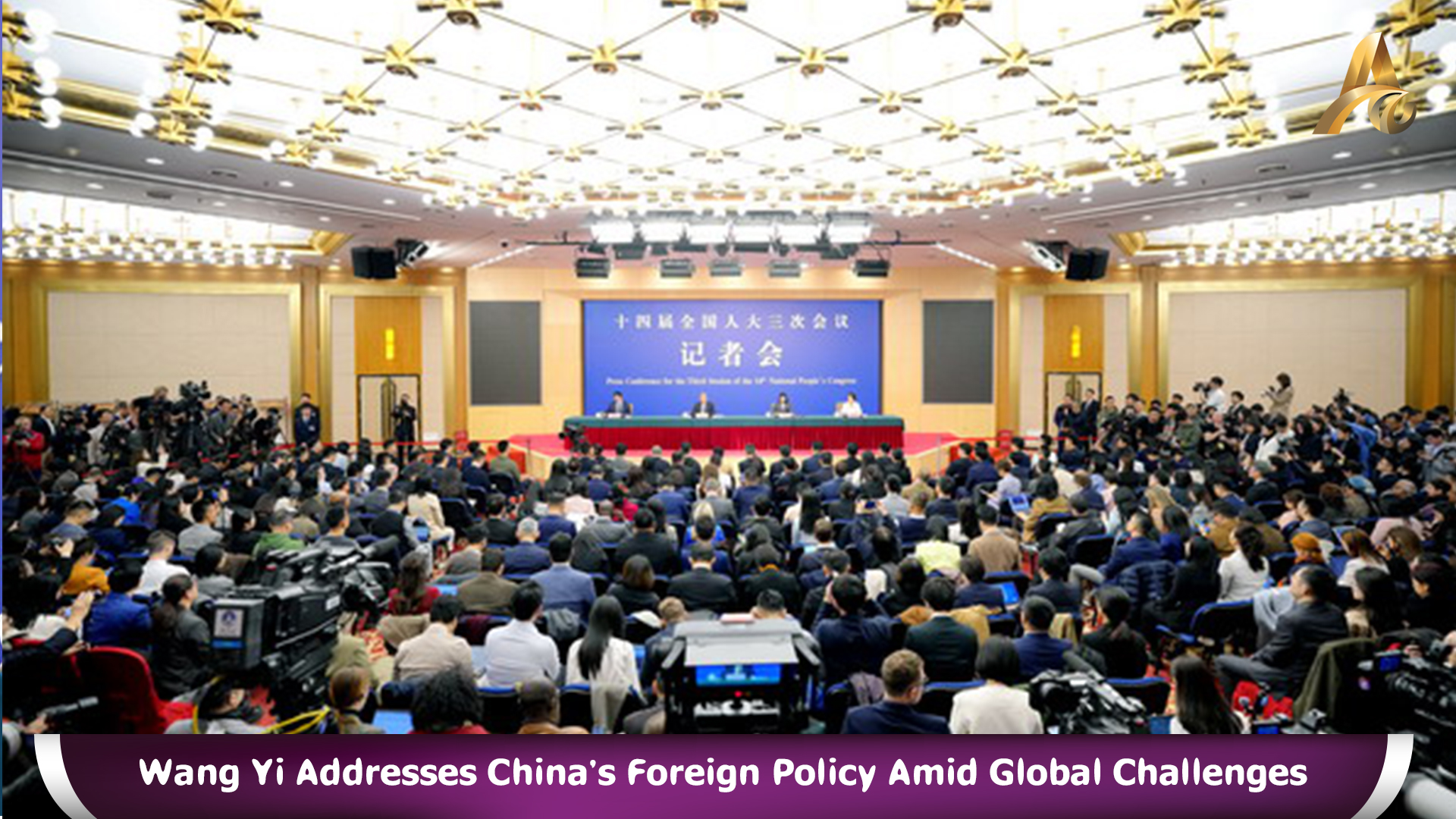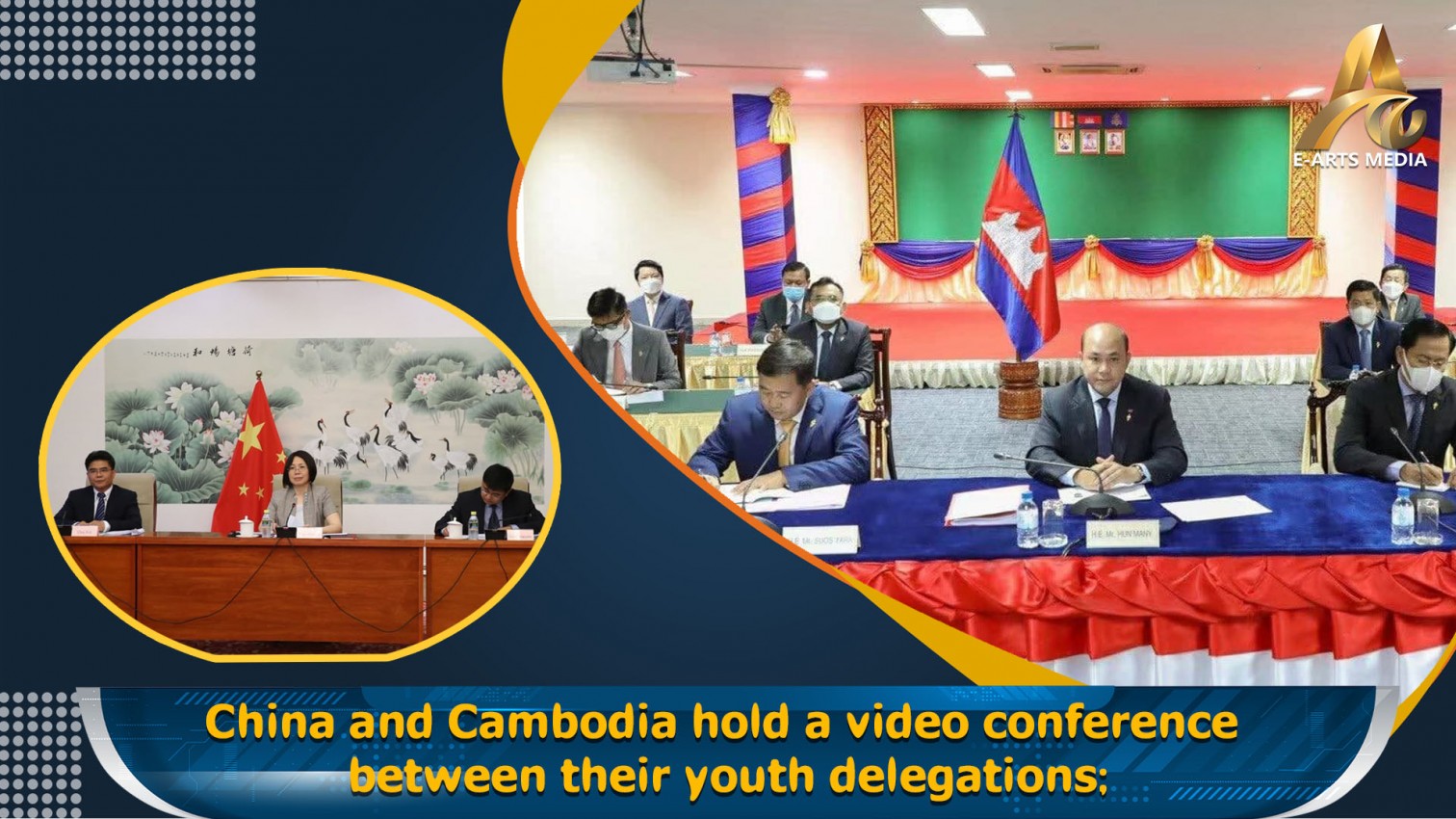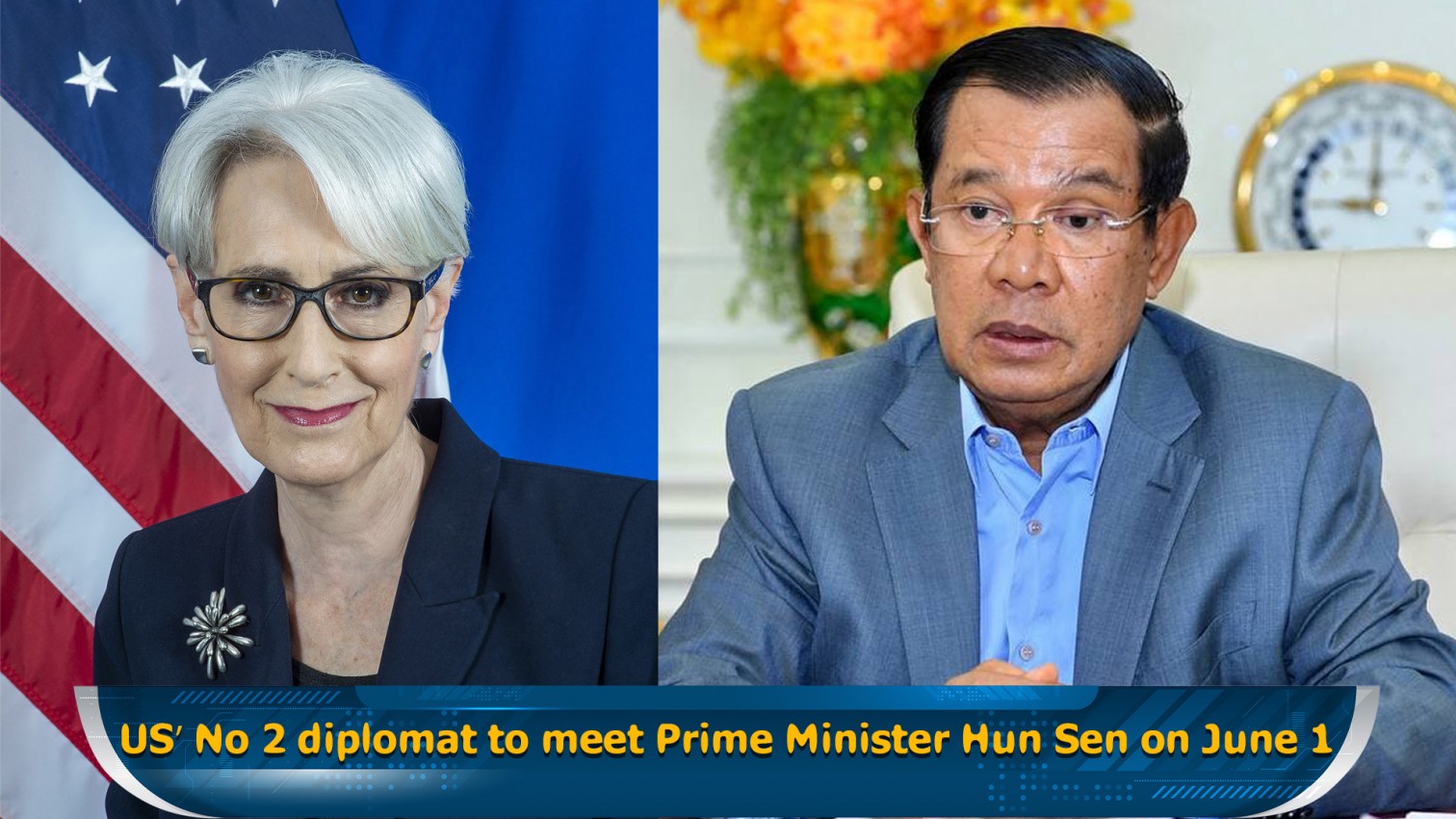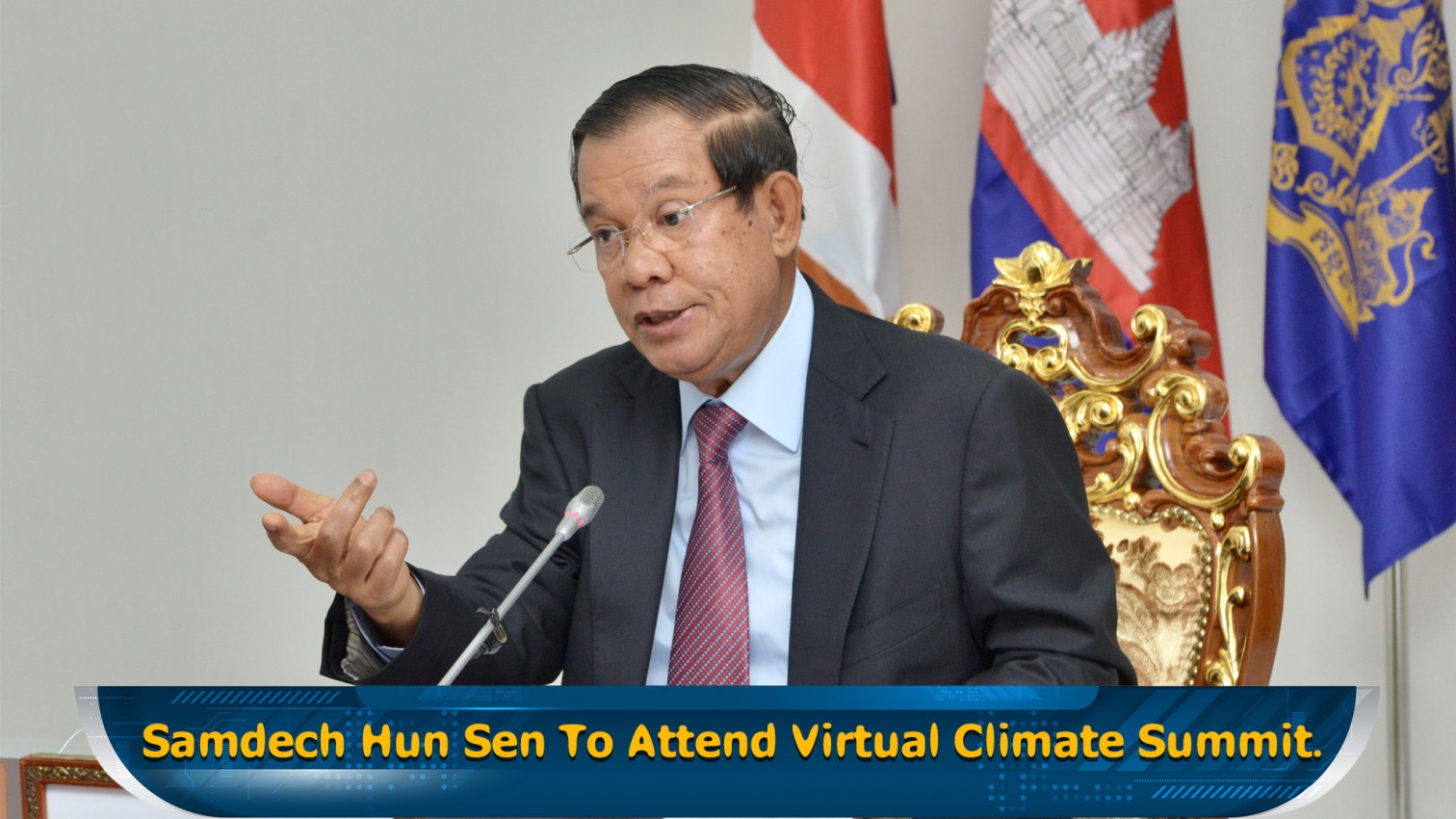On March 7, 2025, a press conference was held at the Media Center in Beijing, featuring Wang Yi, Member of the Political Bureau of the CPC Central Committee and Foreign Minister of China. The event took place on the margins of the Third Session of the 14th National People's Congress and served as a platform for Wang to discuss China's foreign policy and respond to inquiries from both domestic and international media representatives.
Wang Yi opened the conference by reflecting on the international landscape in 2024, describing it as a year of profound changes and significant progress for China. He credited General Secretary Xi Jinping for advancements in Chinese diplomacy, emphasizing efforts to foster a good external environment for high-quality development and to promote a shared future for mankind.
During the conference, Wang addressed questions regarding China’s head-of-state diplomacy, highlighting key events such as:
- The 70th-anniversary conference of the Five Principles of Peaceful Coexistence.
- The Beijing Summit of the Forum on China-Africa Cooperation.
- The China-Arab States Cooperation Forum.
He noted the significance of President Xi Jinping's overseas visits to Europe, Central Asia, BRICS, and Latin America as a means to generate new dynamics for global solidarity and cooperation. Wang also outlined upcoming diplomatic engagements, including the commemoration of the 80th anniversary of World War II victories and the Shanghai Cooperation Organization summit.
Media Questions and Responses:
 The first question came from China Central Television, which asked Wang to elaborate on the achievements of China's head-of-state diplomacy over the past year and what highlights could be anticipated for the future. Wang highlighted significant diplomatic initiatives, including the 70th-anniversary conference of the Five Principles of Peaceful Coexistence, the Beijing Summit of the Forum on China-Africa Cooperation, and the China-Arab States Cooperation Forum. He also underscored the importance of President Xi Jinping's overseas visits to Europe, Central Asia, BRICS, and Latin America as vital efforts to foster global cooperation.
The first question came from China Central Television, which asked Wang to elaborate on the achievements of China's head-of-state diplomacy over the past year and what highlights could be anticipated for the future. Wang highlighted significant diplomatic initiatives, including the 70th-anniversary conference of the Five Principles of Peaceful Coexistence, the Beijing Summit of the Forum on China-Africa Cooperation, and the China-Arab States Cooperation Forum. He also underscored the importance of President Xi Jinping's overseas visits to Europe, Central Asia, BRICS, and Latin America as vital efforts to foster global cooperation.
 Next, a reporter from ITAR-TASS inquired about the evolving relationship between China and Russia, particularly amidst recent developments in U.S.-Russia talks. Wang responded by emphasizing the historical significance of Sino-Russian friendship and assured that their strategic partnership remains resilient in the face of external pressures.
Next, a reporter from ITAR-TASS inquired about the evolving relationship between China and Russia, particularly amidst recent developments in U.S.-Russia talks. Wang responded by emphasizing the historical significance of Sino-Russian friendship and assured that their strategic partnership remains resilient in the face of external pressures.
 CNN then posed a question regarding the implications of President Trump’s “America First” policy on the global landscape. Wang firmly rejected unilateralist approaches, advocating instead for a collaborative global order that prioritizes mutual respect and common interests among nations. He cautioned against the dangers of power politics, highlighting that weaker countries often bear the brunt of such actions.
CNN then posed a question regarding the implications of President Trump’s “America First” policy on the global landscape. Wang firmly rejected unilateralist approaches, advocating instead for a collaborative global order that prioritizes mutual respect and common interests among nations. He cautioned against the dangers of power politics, highlighting that weaker countries often bear the brunt of such actions.
 Radio Republik Indonesia sought to understand how developing countries could protect their interests in an increasingly turbulent world. Wang focused on the importance of unity among the Global South, asserting its critical role in maintaining world peace and driving economic growth. He emphasized the need for solidarity and cooperation among developing nations.
Radio Republik Indonesia sought to understand how developing countries could protect their interests in an increasingly turbulent world. Wang focused on the importance of unity among the Global South, asserting its critical role in maintaining world peace and driving economic growth. He emphasized the need for solidarity and cooperation among developing nations.
 Bloomberg followed up with inquiries about China's role in the ongoing Ukraine crisis and potential diplomatic solutions. Wang reiterated his commitment to supporting a political resolution through dialogue, emphasizing China's impartial stance and its willingness to facilitate peace.
Bloomberg followed up with inquiries about China's role in the ongoing Ukraine crisis and potential diplomatic solutions. Wang reiterated his commitment to supporting a political resolution through dialogue, emphasizing China's impartial stance and its willingness to facilitate peace.
 Anadolu Agency posed a question concerning U.S. plans to "take over" Gaza and what that would mean for the Palestinian people. Wang asserted that Gaza rightfully belongs to the Palestinian people and called for a peaceful resolution, stressing the importance of a two-State solution.
Anadolu Agency posed a question concerning U.S. plans to "take over" Gaza and what that would mean for the Palestinian people. Wang asserted that Gaza rightfully belongs to the Palestinian people and called for a peaceful resolution, stressing the importance of a two-State solution.
 A reporter from Reuters addressed the recent U.S. tariffs on China related to fentanyl, asking how China would navigate its relationship with the Trump administration under these circumstances. Wang reaffirmed China's commitment to combating drug trafficking, emphasizing the need for the U.S. to tackle its own domestic issues rather than imposing tariffs that could exacerbate the situation.
A reporter from Reuters addressed the recent U.S. tariffs on China related to fentanyl, asking how China would navigate its relationship with the Trump administration under these circumstances. Wang reaffirmed China's commitment to combating drug trafficking, emphasizing the need for the U.S. to tackle its own domestic issues rather than imposing tariffs that could exacerbate the situation.
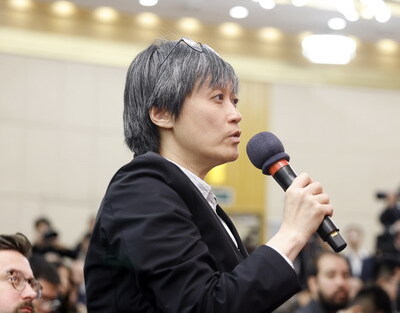 Lianhe Zaobao raised concerns regarding the progress of consultations for a Code of Conduct in the South China Sea and recent tensions with the Philippines. Wang noted that consultations were progressing and confirmed China’s dedication to peaceful dialogue while opposing any disruptive military deployments by external forces.
Lianhe Zaobao raised concerns regarding the progress of consultations for a Code of Conduct in the South China Sea and recent tensions with the Philippines. Wang noted that consultations were progressing and confirmed China’s dedication to peaceful dialogue while opposing any disruptive military deployments by external forces.
As the press conference continued, various questions were posed about regional relationships and perceptions of China. Wang acknowledged a rising favorability toward China in Southeast Asia and emphasized the importance of mutual understanding and respect in international relations.
In closing, the conference lasted 90 minutes, with Wang Yi providing comprehensive insights into China’s foreign policy direction and its approach to various global challenges. His remarks underscored China's commitment to cooperation, stability, and mutual respect in the international arena.
Souce: fmprc








